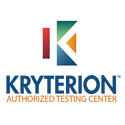Python Training
About This Course
Python training will prepare skilled professionals to undertake various projects coming under web development, artificial intelligence, game programming, data analytics, etc. This course will introduce the professionals to the world of python programming, wherein they will learn to implement computational logics, conditional statements, and other programming fundamentals, including functions and classes.
Furthermore, the course will also focus on training the students to develop a strong programming approach that will help in their future undertakings. Python is considered as a beginner-friendly language as well as suitable even for the veteran programmers. The fundamentals of python programming can be used as a wireframe to start with other programming languages. All in all, this course can prove very beneficial to professionals at every stage of their careers.
Who Should Attend This Course
This course is suitable for students as well as working professionals. If you want to start your career or want to transition your career path, python training and certification will help you with your endeavors. It is the best course for web developers, system engineers, mobile app programmers, and especially AI/ML enthusiasts.
Why This Course
One of the main reasons to enroll in this course is to prepare yourself for the upcoming disruption in the world of technology. Amidst the cut-throat competition, having a professional python certification will make you stand out in the pile of thousands of resumes. Here are some more reasons to enroll yourself in this course.
- This course will help you to develop a better understanding of programming.
- If you want to learn web development, python is the gateway to the world of frameworks such as Bottle, Django, and Flask.
- This course will prepare you for getting a headstart for hot topics, including game programming, AI, ML, and augmented reality.
Having a python certification will also boost your career if you’re facing a career clog, which is a common situation amongst veterans in the IT and computer software industry.
Course Objectives
We’re providing python training and certifications while keeping the following objectives in hindsight.
- The primary objective of this course is to give the students a headstart in the vast domain of python.
- In addition to this, the course is also aimed to develop a basic intuition in terms of programming concepts such as conditional statements and loops.
Besides, python training and certification will prepare the students to dive deeper into the sub domains of computer science while using python as the main programming tool.
Course Prerequisites
Since python is widely recognized as a beginner friendly language, there’s no prerequisite. However, having a prior understanding of programming concepts will make the overall course a little bit lucid.
Course Benefits
The major benefits of enrolling in the python training and certification are given below.
- It’ll give a headstart to the professionals who’re taking this course.
- This course will help the students in proceeding for beginner-friendly projects.
- Python training and certification will simplify the job search for a plethora of professionals coming from different domains.
- Python is a versatile language. It’ll help you in developing a wide range of projects for your organization.



























